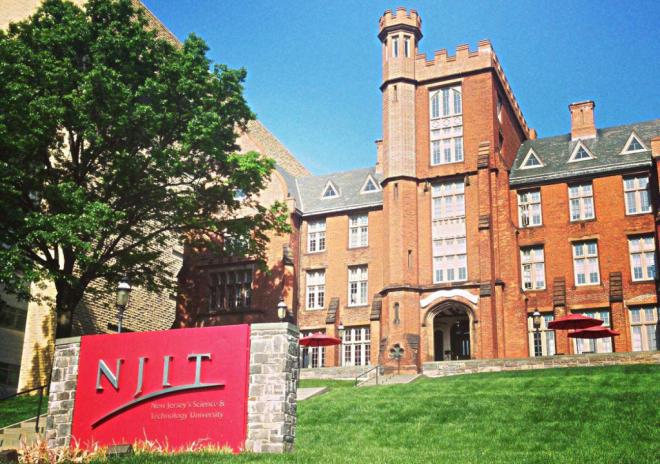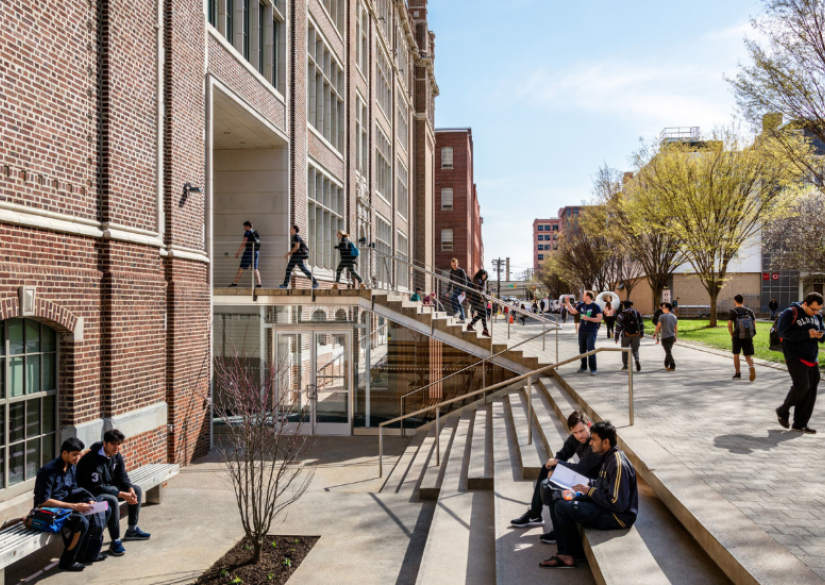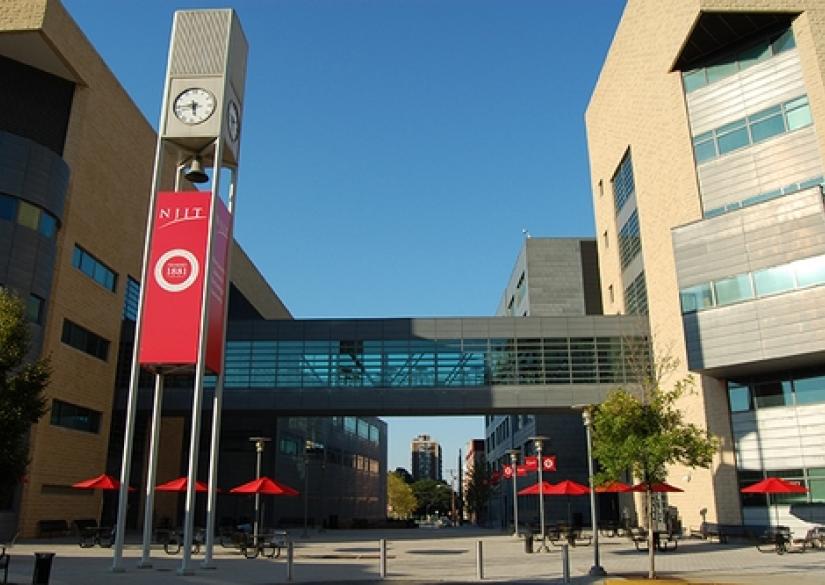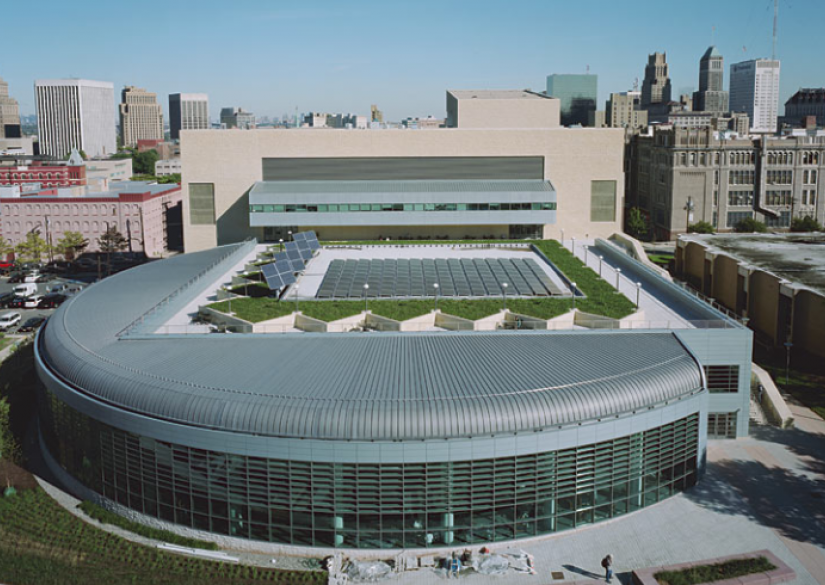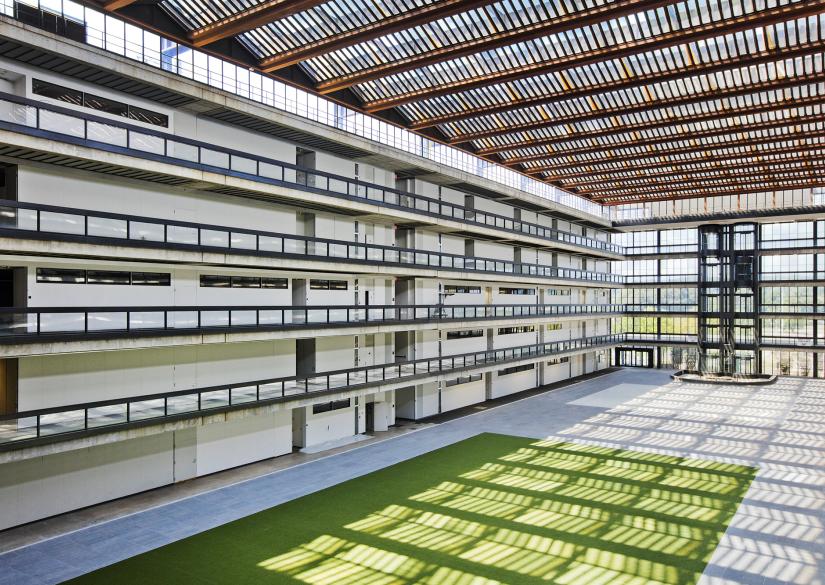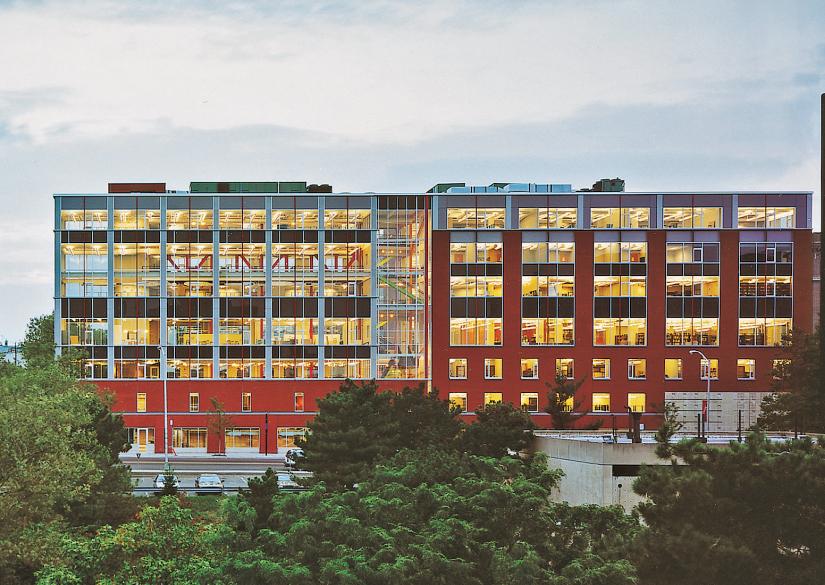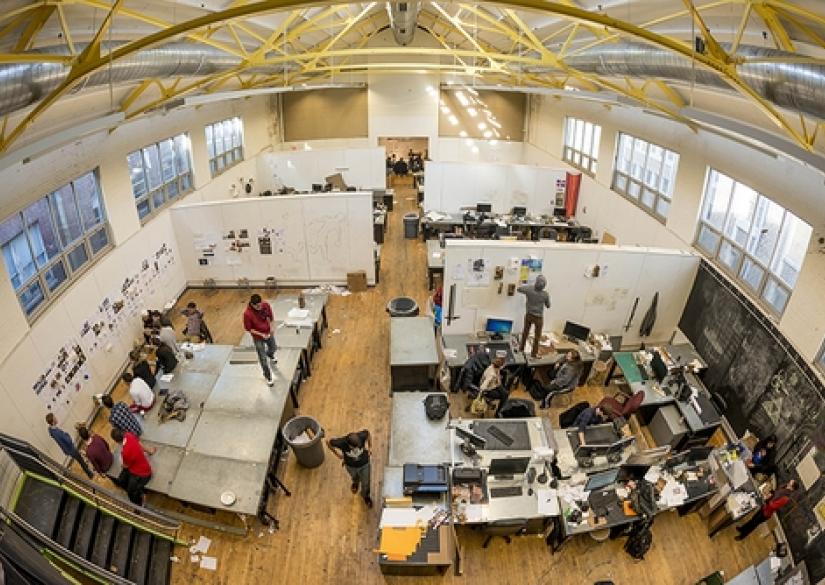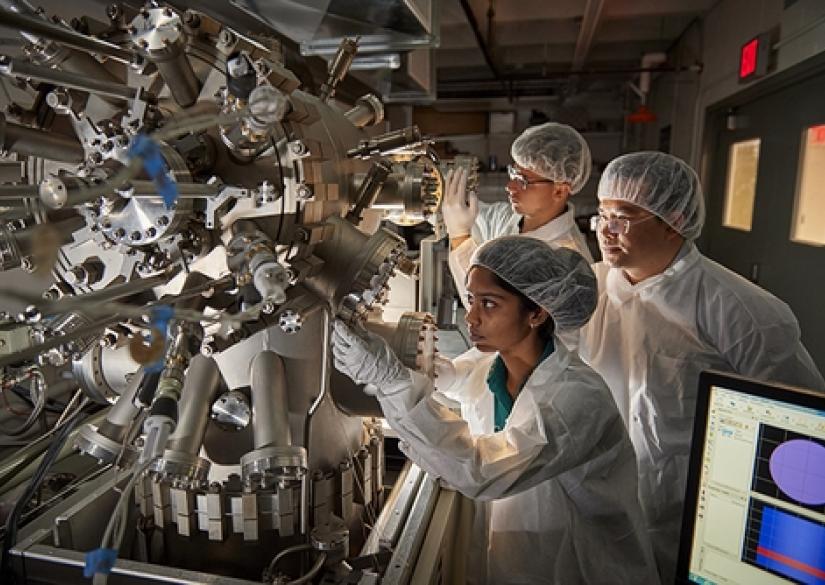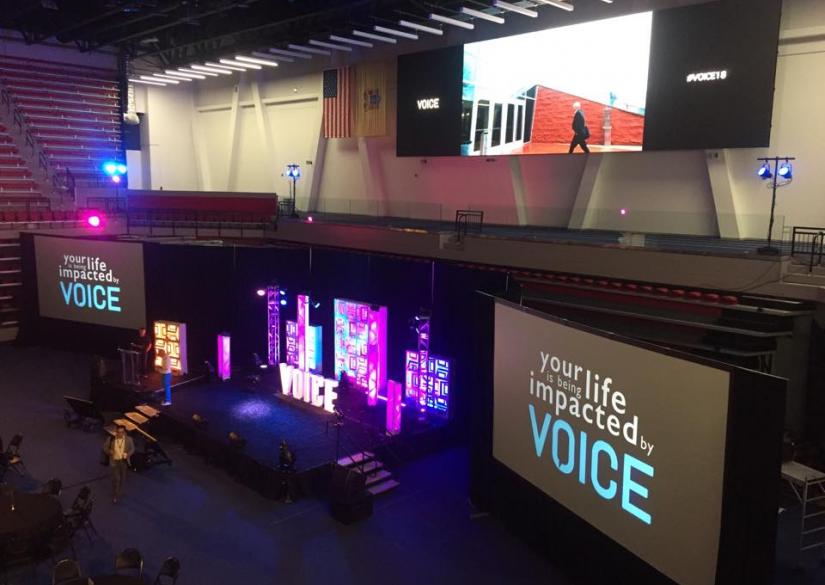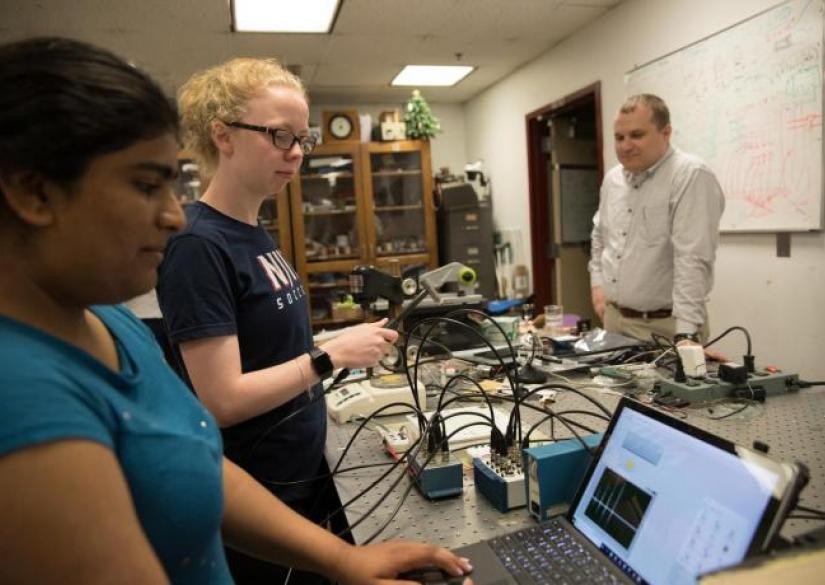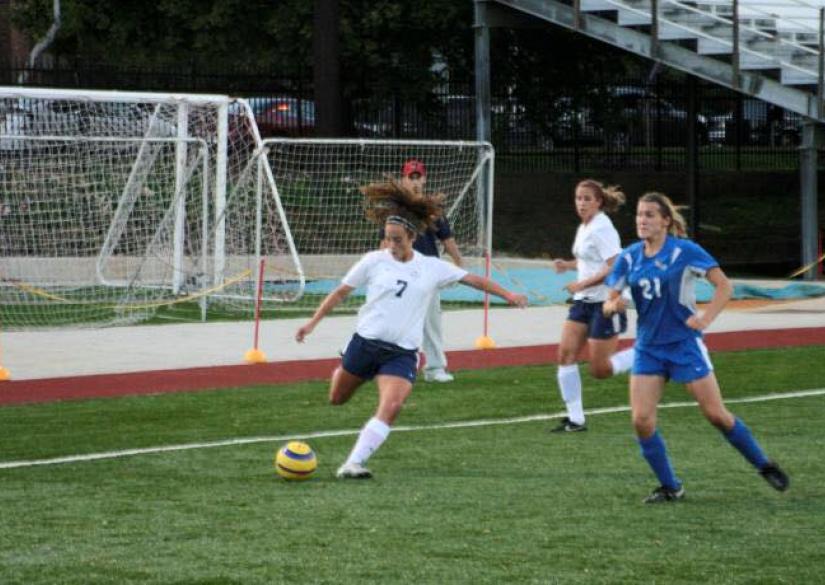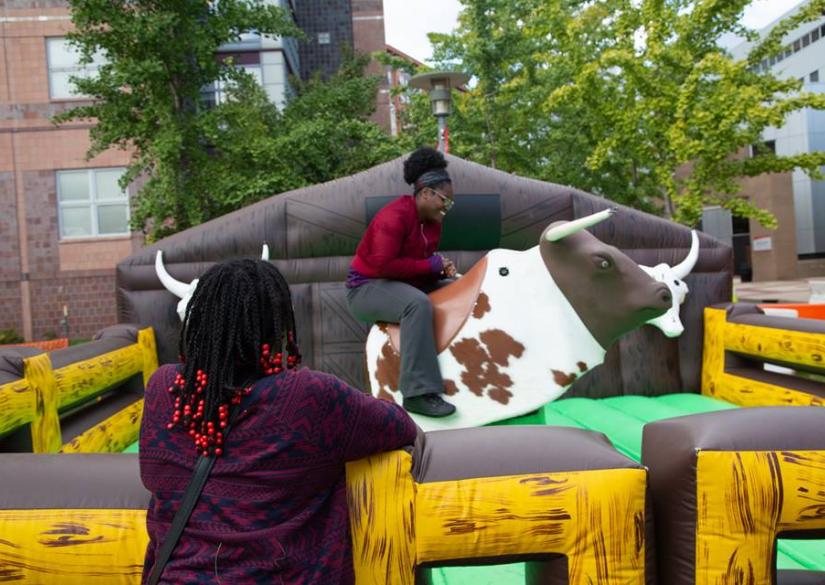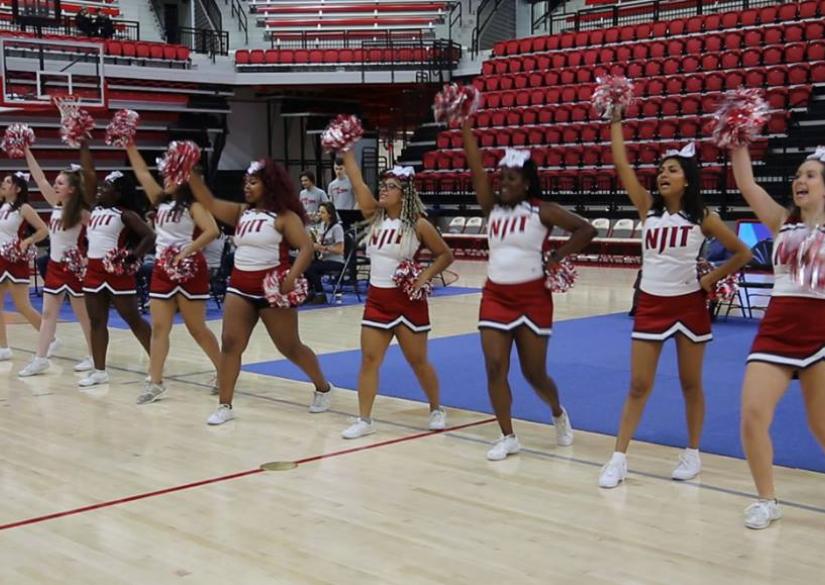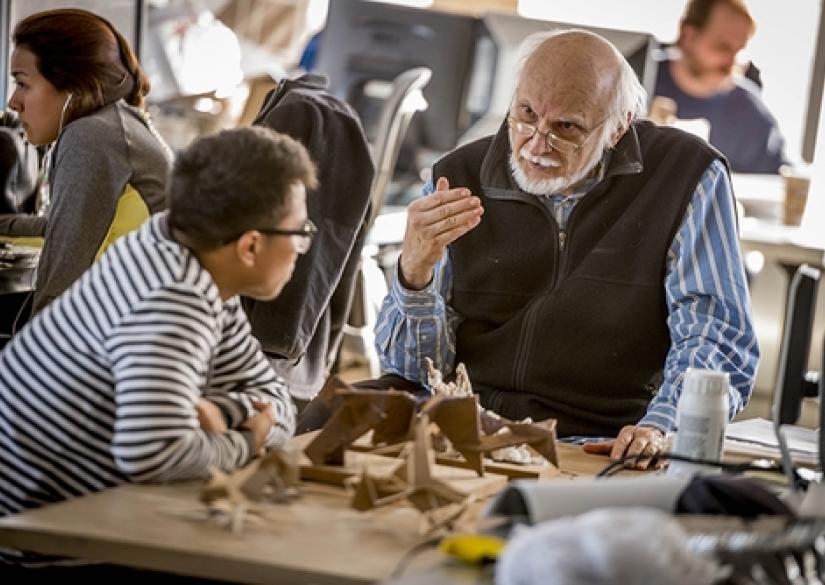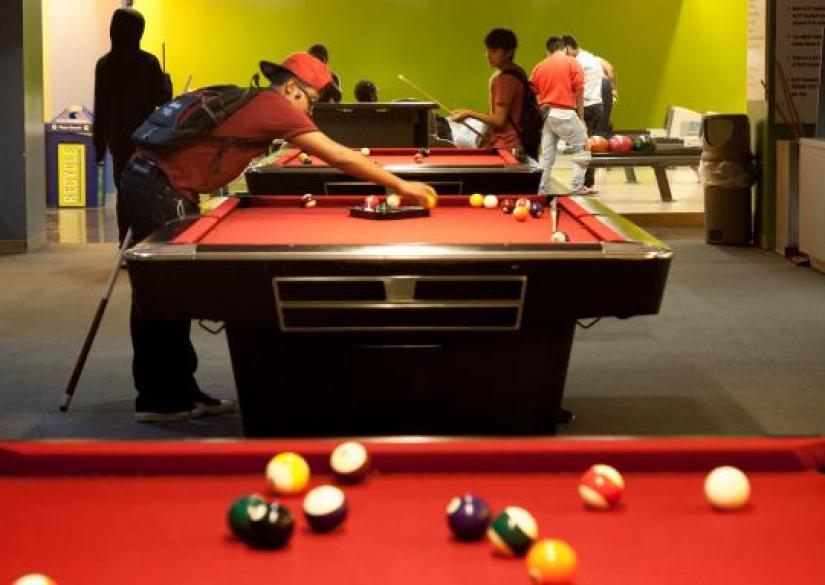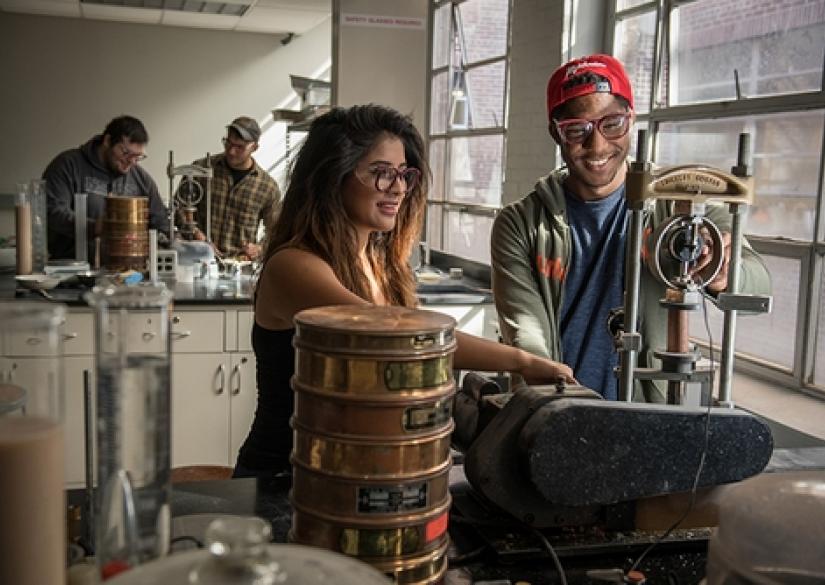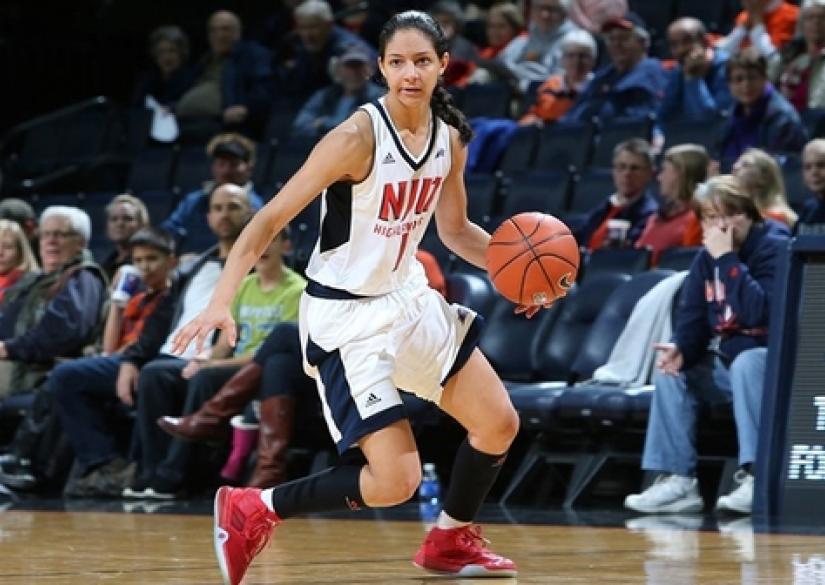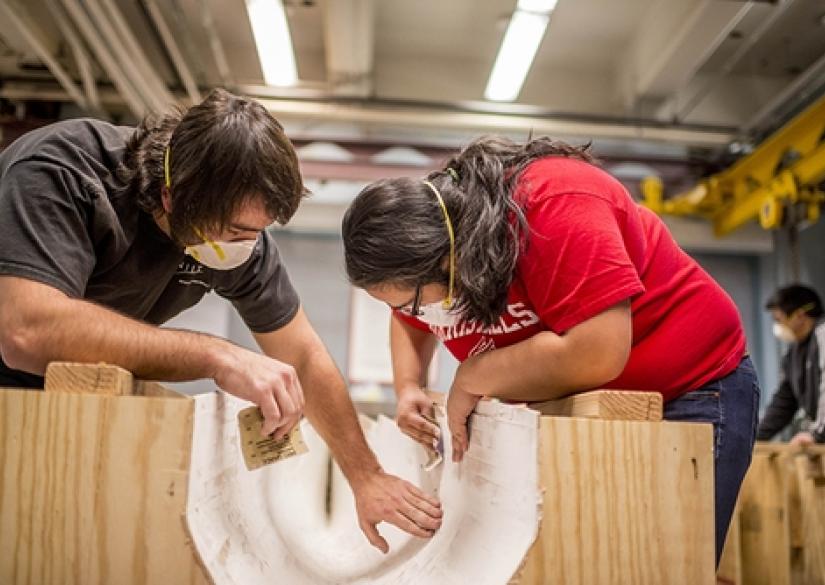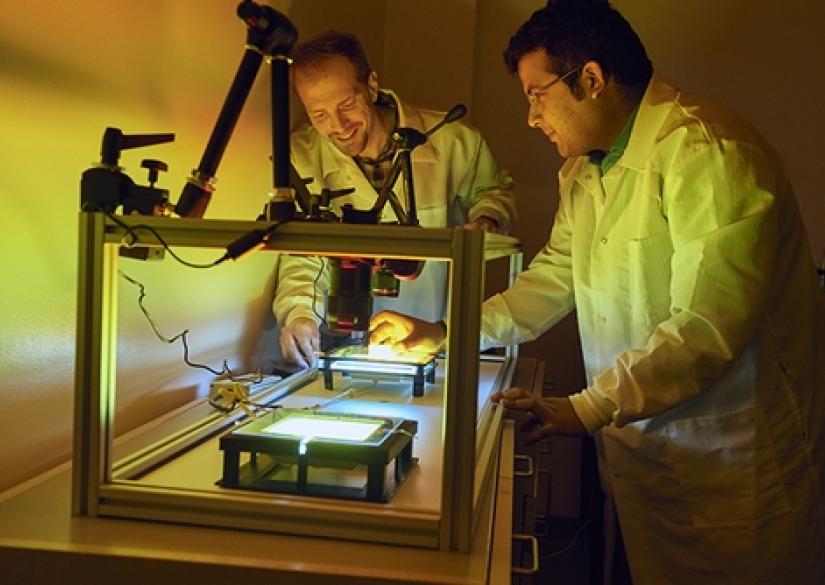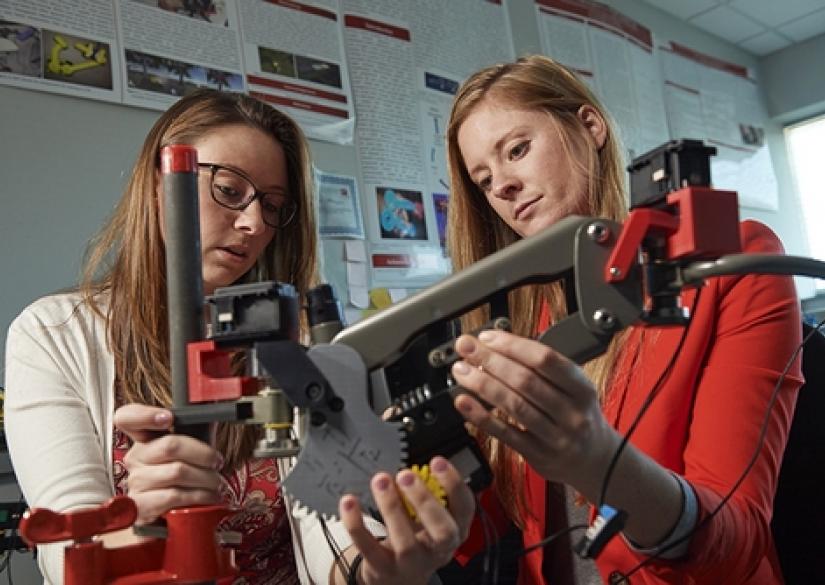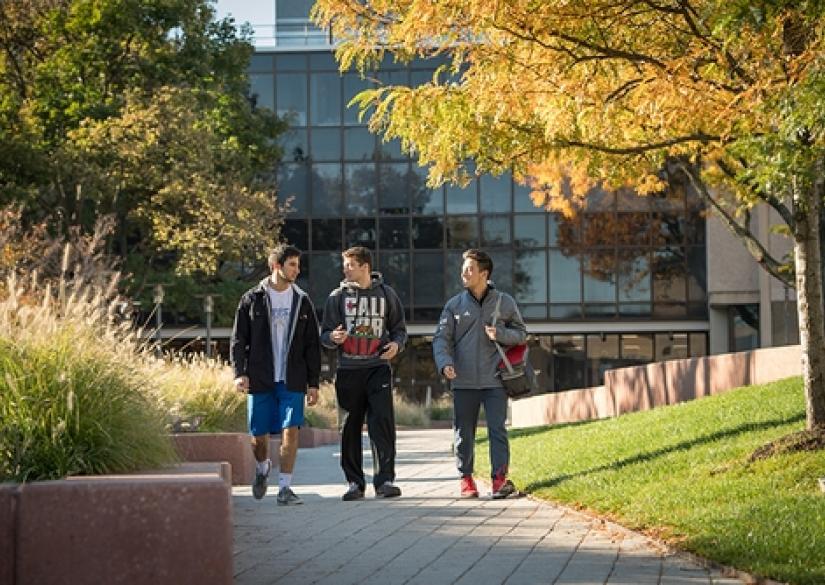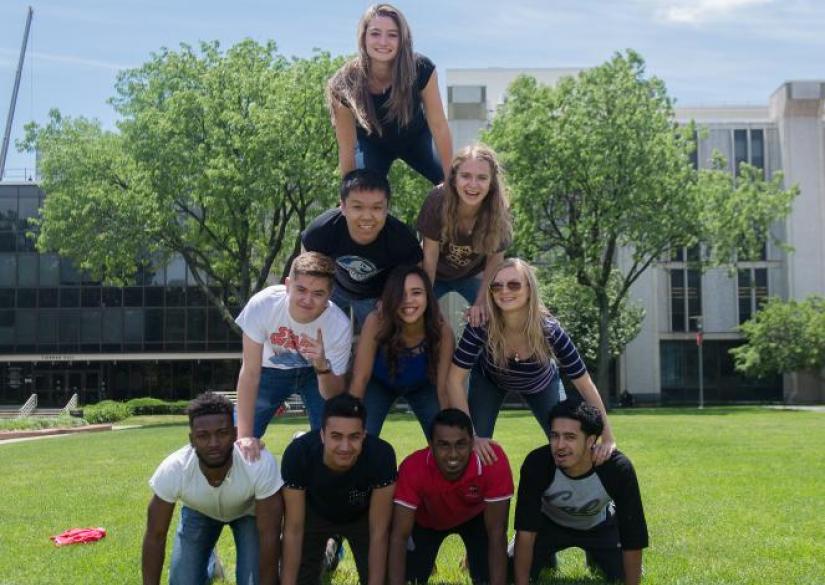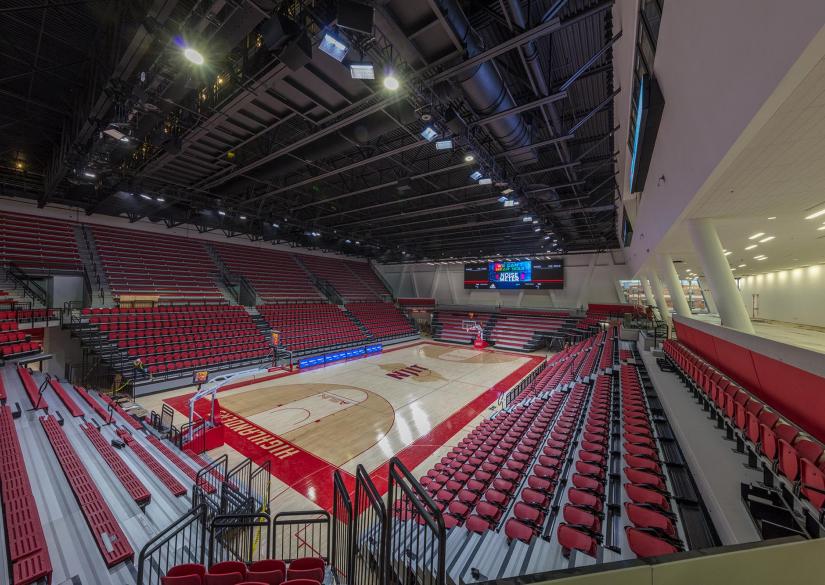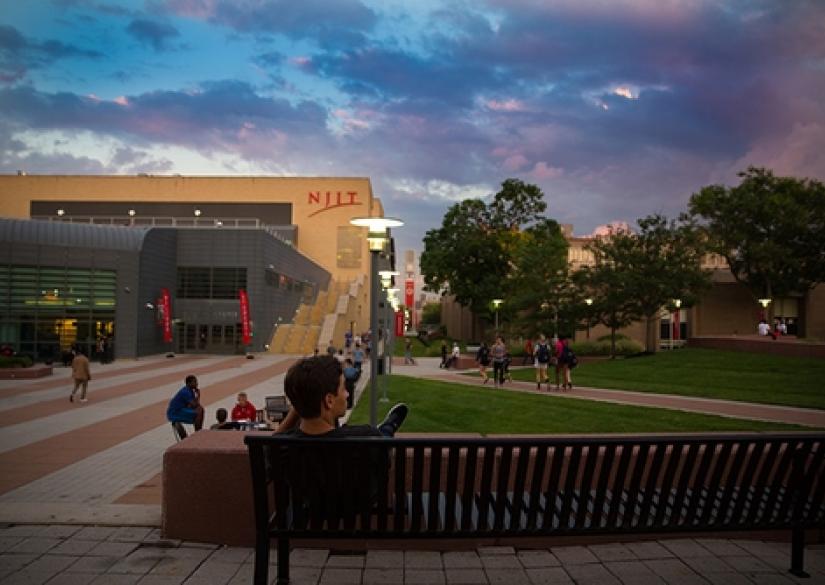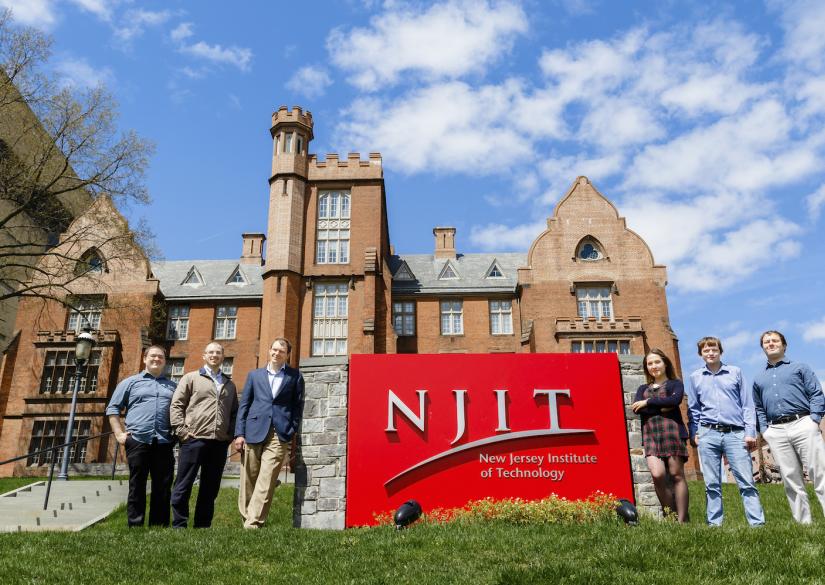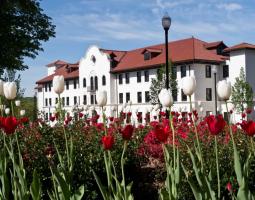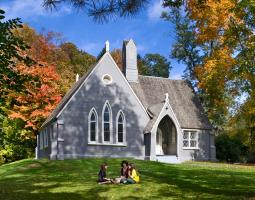New Jersey Institute of Technology (NJIT)
Programs and prices, tuition fees in New Jersey Institute of Technology (NJIT)
Specify information on the training program on the official site of an educational institution.
Specify information on the training program on the official site of an educational institution.
Pre-College Programs
- Age - from 10 to 18 years.
NJIT's Center for Pre-University Programs provides short-term courses for students in grades 4-12, offering the opportunity to explore careers in science, technology, engineering, and mathematics (STEM). Many of the programs are available for free, lasting from one to several weeks.
Description of New Jersey Institute of Technology (NJIT)
The New Jersey Institute of Technology is one of the most prestigious institutions providing higher education in the United States of America. The state ownership of the New Jersey Institute of Technology (NJIT) allows the university to remain competitive in the education market. The beginning of academic activities dates back to 1881. The main university buildings are located in the vicinity of the city of Newark.
According to the National Academic Scale, the New Jersey Institute of Technology is ranked 162 among the top US institutions of higher education. According to international estimates, NJIT is in the top 5 percent of the world's most prestigious universities. Separately, it is worth noting the attitude of employers to graduates of the university. A specialist with a diploma from the New Jersey Institute of Technology can rely on a high-paying job immediately after graduation.
Faculties and colleges
NJIT has six specialized colleges offering training in the following areas:
- Engineering
- Architecture, design,
- Science, liberal arts,
- Management
- Computer Engineering,
- College with honors.
Scientific achievements
NJIT is actively engaged in research activities in several scientific profiles:
- Bioscience, Bioengineering,
- Environment, sustainable development,
- Data science, data management,
- Innovation, Entrepreneurship,
- Robotics, machine intelligence,
- Materials Science, Engineering.
Both qualified teachers and students of all specializations participate in the scientific work.
Accommodation, meals, prices
NJIT students live in four residences located near the academic buildings. The residential buildings offer rooms of different capacities and comfort levels: single, double and triple standard and deluxe bedrooms with full furnishings, shared bathrooms and seating areas. Each building has laundries, air conditioning and high-speed Internet access.
The institute's large dining room has a variety of cafeterias with a variety of menus, including vegetarian and diabetic options.
Activities New Jersey Institute of Technology (NJIT)
Hundreds of thematic clubs and organizations, sports sections and creative areas working on campus give students the opportunity to realize their talent and spend their free time usefully.
Thematic clubs are created by the students themselves, unite like-minded people and help promote ideas that are important for society. Some clubs are built on local interests, such as cooking, handicrafts or computer games, while others are built on more global ones, for example, ecology, politics, support for women in various scientific areas. Examples of clubs:
- Association of African Students,
- American Sign Language Club,
- Anime
- Baking
- Books, literature,
- Business, Entrepreneurship,
- Christianity
- Board games,
- Dancing
- Community of Fellows and more.
Sports teams made up of outstanding students participate in inter-university and regional competitions in a variety of sports. The most popular are:
- Baseball
- Basketball
- Soccer
- Swimming, diving,
- Tennis
- Athletics
- Volleyball
- Fencing
- Lacrosse
- Hockey.
In addition to sports and participation in clubs, students have access to volunteer projects, external and campus events, and opportunities to gain practical professional skills.
Advantages
- One of the top 50 public universities in the U.S. News & World Report rankings,
- No1 as a public university for graduate earnings, economic mobility, and academic profile according to the New York Times,
- 98% of faculty members have an advanced degree in their field,
- Full accreditation of higher education programs,
- R1 classification: "Very high research activity",
- The ratio of teachers to students is 1:15.
Facilities and equipment at New Jersey Institute of Technology (NJIT)
This educational institution is not large. Within its walls, 8,000 students simultaneously receive education. The selection committee does not restrict the admission of citizens of other countries. A total of 15% of all students are foreign nationals. The academic staff is represented by 529 teachers. Most of the specialists of the university administration invited from the world's leading universities. Partners of the New Jersey Institute of Technology from other countries support the participation of the university in the international exchange of students and provide for this their base of study. All the nuances of these programs can be found on social networks related to NJIT.
A worthy infrastructure unit is the institute’s own library. It is fully equipped with special literature and the necessary periodicals. All students have the opportunity to stay in a comfortable hostel.
NJIT's strong academic potential underlines its presence in the ASSOCIATION OF PUBLIC & LAND-GRANT UNIVERSITIES and SPORT AFFILIATIONS & MEMBER SHIPS NATIONAL COLLEGIATE ATHLETIC ASSOCIATION groups.
Admission dates and extra charges
The academic year consists of two semesters and two seasonal sessions:
- Fall semester: September-December,
- Winter session: January,
- Spring Semester: January-May,
- Summer session: May-August.
The dates of study for different programs may vary, since not all students need to take exams on the full dates of exams. Classes are held on weekdays, rest - on weekends, holidays and during vacations.
Approximate list of additional costs:
- Registration, administrative fees,
- Accommodation, meals and related expenses,
- Student life: club fees, payment for some extracurricular activities,
- Health insurance,
- Additional academic opportunities,
- Customized study materials,
- Personal expenses.
Enrolment process
The Admissions Committee expects applicants to submit a completed application, required documents, and payment of the application fee, after which it invites them for an interview and makes a decision on admission.
Perspectives
Among the graduates of NJIT, there are already hundreds of famous personalities who have built careers in various scientific areas, for example:
- Judah Pearl – Turing Award winner
- Harry L. Ettlinger – Congressional Gold Medal Recipient
- Edward Weston - chemist, winner of the Franklin Medal,
- Sara Del Valle is a mathematician-epidemiologist at Los Alamos National Laboratory.
Entry requirements, how to apply, what is required to enrol
Becoming a student of such a prestigious institution is possible after submitting to the admissions office information about previous progress in school or college. Then you must pass the stage of entrance exams at the chosen faculty. This institution of higher education does not differ in the curtailed requirements for applicants, and therefore 2/3 of applicants go to the institute (these figures may differ depending on the prestige of a particular faculty). The learning process is divided into two semesters, constituting one academic year.
As for the cost of educational services, they are lower here than in the rest of the US educational sector. During the year of study at the bachelor's course, the student must pay an amount of 12,500 dollars. The cost of obtaining knowledge of postgraduate education will cost the future master the same $ 12,500. for one academic year. It is worth considering that the administration of the university offers students to participate in a variety of scholarship programs that can cover most of the financial costs. For those who do not have the opportunity to study full-time, the administration of NJIT offers the option of distance education.
The official website of the New Jersey Institute of Technology provides information on the nuances of admission to the university, and the price list of educational services in a particular department can also be found there.
Scholarships New Jersey Institute of Technology (NJIT)
More than 90% of students receive financial support in the form of scholarships, grants or financial aid.
Literature and references
-
New Jersey Institute of Technology — Wiki
-
New Jersey Institute of Technology – Colleges — U.S. News & World Report
-
New Jersey Institute of Technology — Niche
-
New Jersey Institute of Technology (NJIT) — Top Universities
-
70 New Jersey Institute of Technology — Forbes
-
New Jersey Institute of Technology 2021-2022 Ranking — Center for World University Rankings
Institution on the map
Residence permits, citizenship and other services
- Guardianship services during the studies
- Student supervision
Review about New Jersey Institute of Technology (NJIT)
Recommendations on when to apply
| Language courses, schools and children's language camps | Primary and secondary education - private schools | Preparation programmes for entering universities - higher education | Higher education (after completing accredited programs A-level, IB, High School) - Bachelor, Master, MBA |
| - we recommend to apply 6-9 months before the start of the course (some camps and schools offer discounts for early booking or for lengthy study programs) - there are some very popular and high demand children's camps, where the applications need to be submitted 1 year in advance (in particular Switzerland , Great Britain , USA , Canada , Austria) | - we recommend to apply one year before the start of the training program, - some schools have a specific time frame (September-November - please specify an individual school) - some schools require tests in several stages (UKISET, internal tests of the school: English, mathematics, logics, subjects, interview, some require a personal visit) | - we recommend to apply one year before the start of the program, - for Foundation and Pathway programs, IELTS and TOEFL certificates are usually required, respectively | - recommended submission one year before the start of the program, - the deadline normally closes in January, for TOP HEIs and, as a rule, in March in other universities - for a bachelor, a Foundation or Pathway preparatory program a completed A-level, IB, High School + IELTS / TOEFL are required - for Masters you need a graduated higher education, in some cases you need a pre-Masters program - MBA requires completed higher education, work experience preferably at least 2-3 years, etc. |


